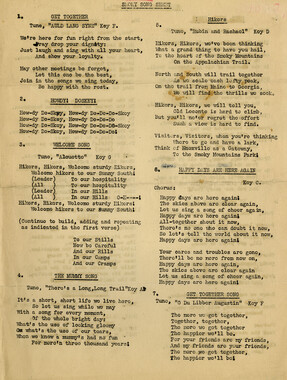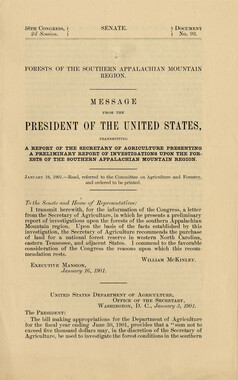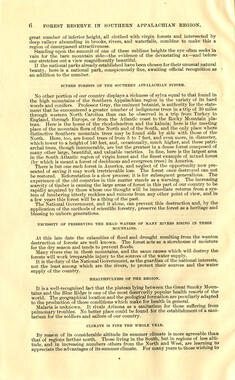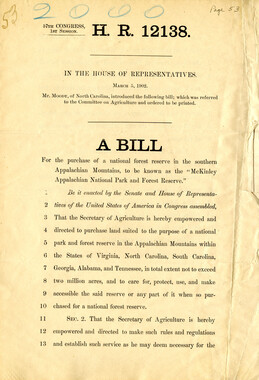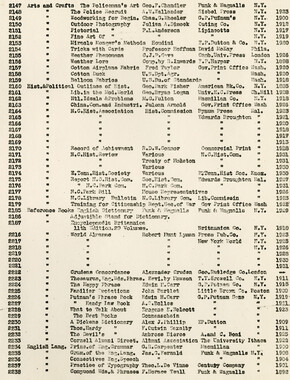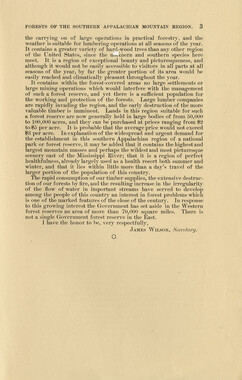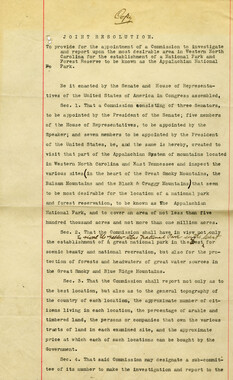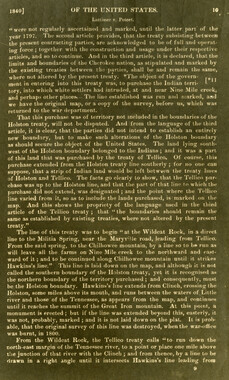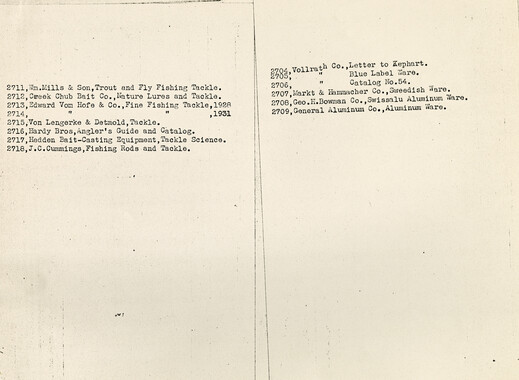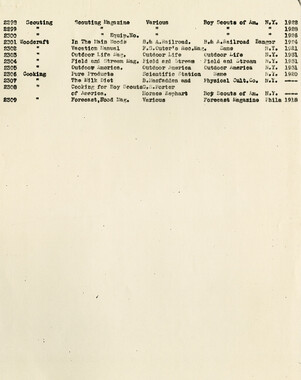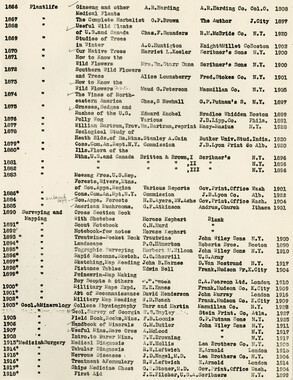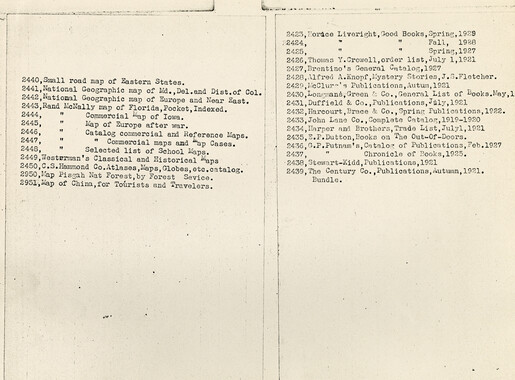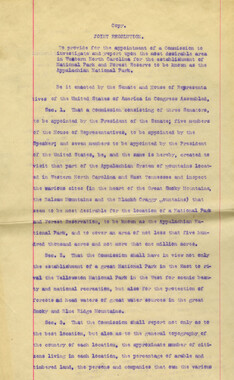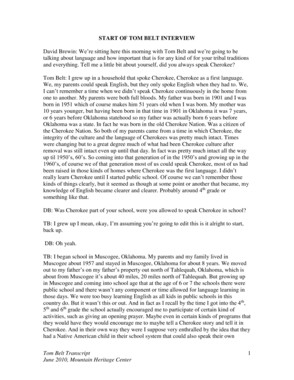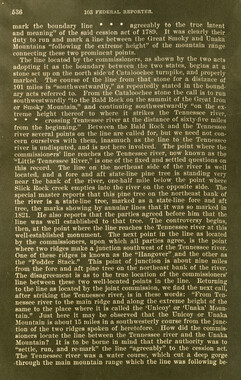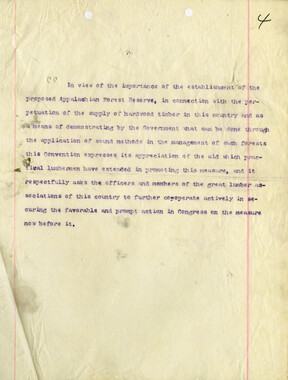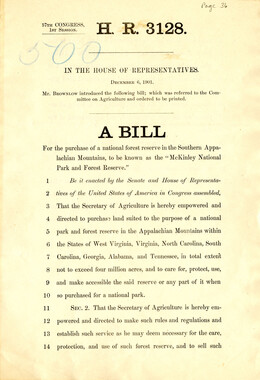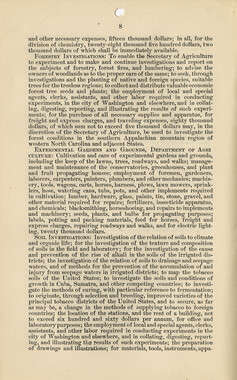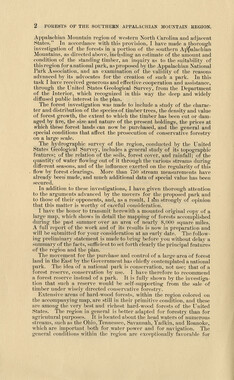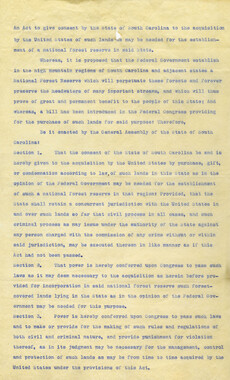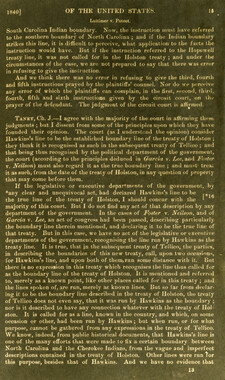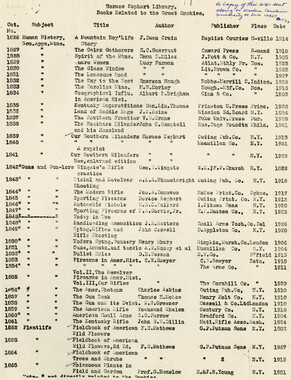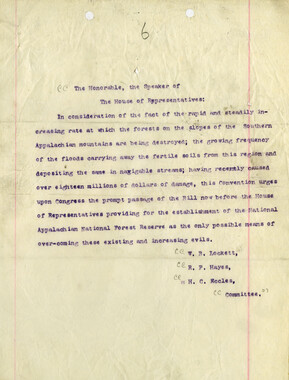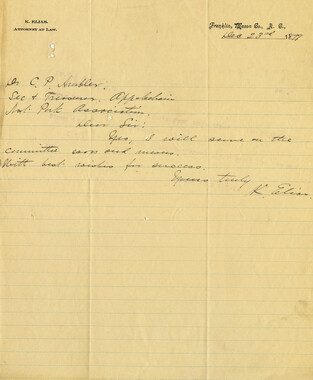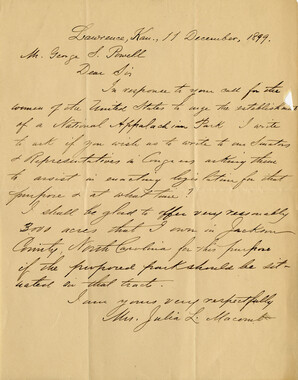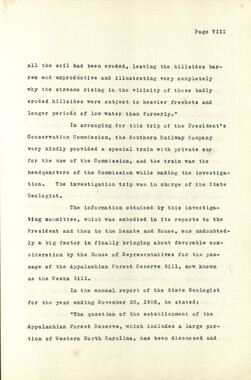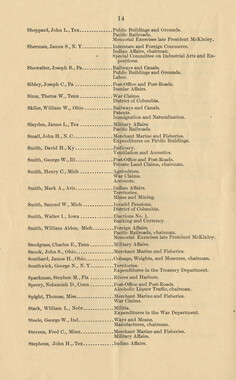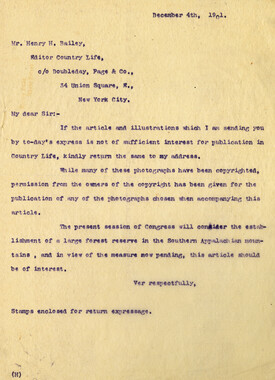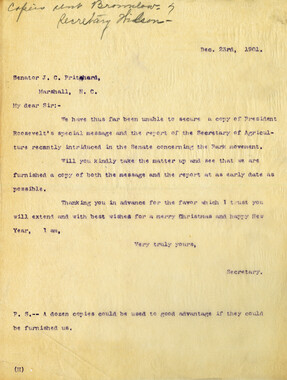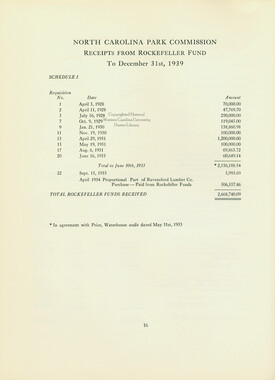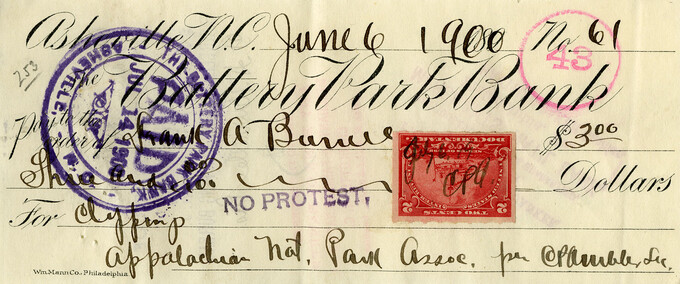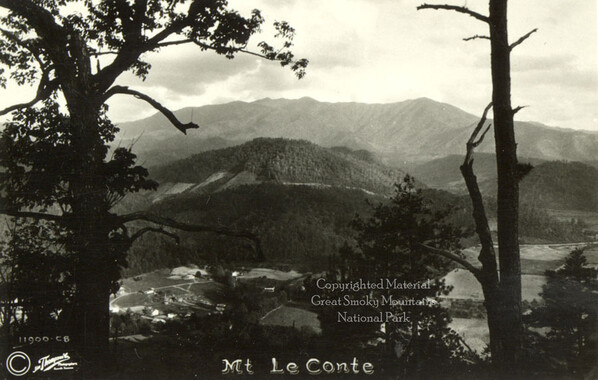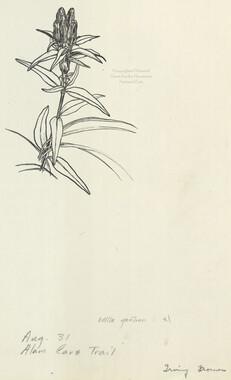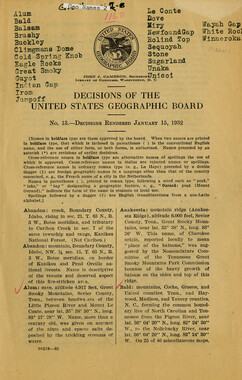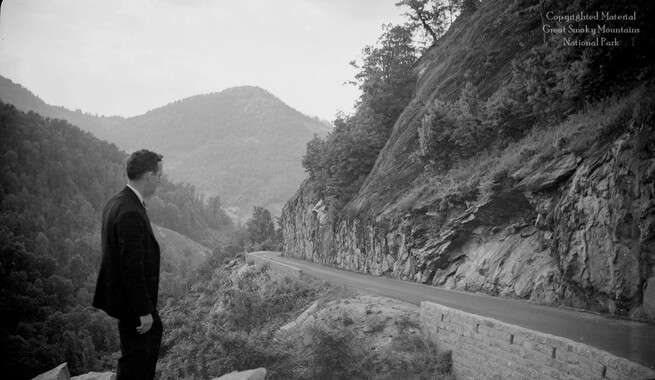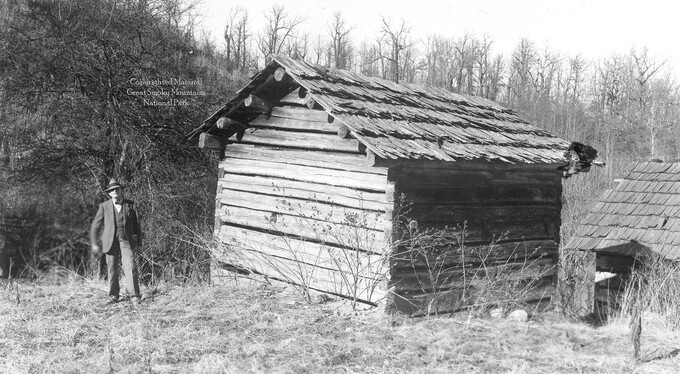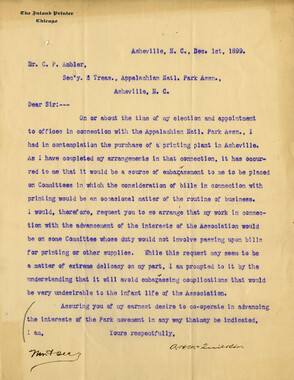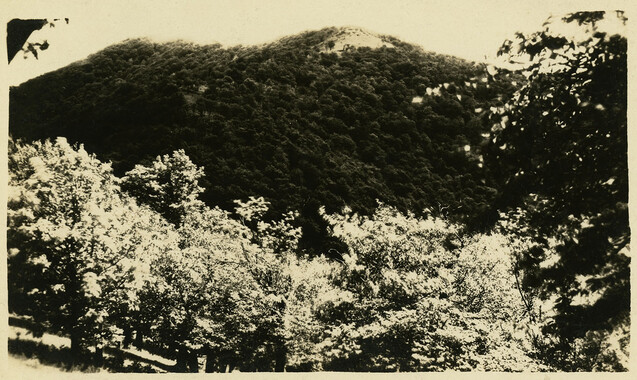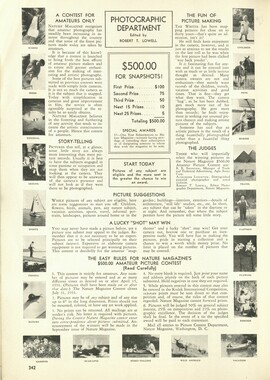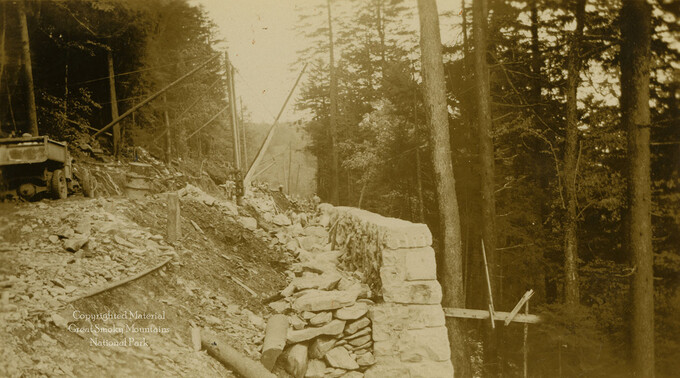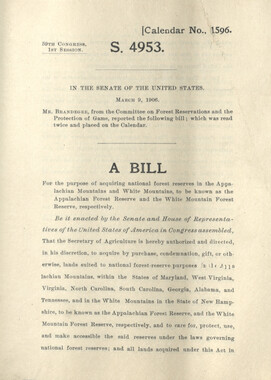Western Carolina University (8)
View all
- Cherokee Traditions (12)
- Civil War in Southern Appalachia (1)
- Craft Revival (18)
- Great Smoky Mountains - A Park for America (46)
- LGBTQIA+ Archive of Jackson County (5)
- Oral Histories of Western North Carolina (299)
- Picturing Appalachia (5)
- Western Carolina University: Making Memories (4)
- Canton Champion Fibre Company (0)
- Highlights from Western Carolina University (0)
- Horace Kephart (0)
- Journeys Through Jackson (0)
- Stories of Mountain Folk (0)
- Travel Western North Carolina (0)
- Western Carolina University Fine Art Museum Vitreograph Collection (0)
- Western Carolina University Herbarium (0)
- Western Carolina University Publications (0)
- Western Carolina University Restricted Electronic Theses and Dissertations (0)
- Western North Carolina Regional Maps (0)
- World War II in Southern Appalachia (0)
University of North Carolina Asheville (0)
View all
- Faces of Asheville (0)
- Forestry in Western North Carolina (0)
- Grove Park Inn Photograph Collection (0)
- Isaiah Rice Photograph Collection (0)
- Morse Family Chimney Rock Park Collection (0)
- Picturing Asheville and Western North Carolina (0)
- Appalachian National Park Association (3)
- Southern Highland Handicraft Guild (5)
- Western Carolina University. Mountain Heritage Center (12)
- Allanstand Cottage Industries (0)
- Bennett, Kelly, 1890-1974 (0)
- Berry, Walter (0)
- Brasstown Carvers (0)
- Cain, Doreyl Ammons (0)
- Carver, George Washington, 1864?-1943 (0)
- Cathey, Joseph, 1803-1874 (0)
- Champion Fibre Company (0)
- Champion Paper and Fibre Company (0)
- Cherokee Indian Fair Association (0)
- Cherokee Language Program (0)
- Crittenden, Lorraine (0)
- Crowe, Amanda (0)
- Edmonston, Thomas Benton, 1842-1907 (0)
- Ensley, A. L. (Abraham Lincoln), 1865-1948 (0)
- Fromer, Irving Rhodes, 1913-1994 (0)
- George Butz (BFS 1907) (0)
- Goodrich, Frances Louisa (0)
- Grant, George Alexander, 1891-1964 (0)
- Heard, Marian Gladys (0)
- Kephart, Calvin, 1883-1969 (0)
- Kephart, Horace, 1862-1931 (0)
- Kephart, Laura, 1862-1954 (0)
- Laney, Gideon Thomas, 1889-1976 (0)
- Masa, George, 1881-1933 (0)
- McElhinney, William Julian, 1896-1953 (0)
- Niggli, Josephina, 1910-1983 (0)
- North Carolina Park Commission (0)
- Osborne, Kezia Stradley (0)
- Owens, Samuel Robert, 1918-1995 (0)
- Penland Weavers and Potters (0)
- Rhodes, Judy (0)
- Roberts, Vivienne (0)
- Roth, Albert, 1890-1974 (0)
- Schenck, Carl Alwin, 1868-1955 (0)
- Sherrill's Photography Studio (0)
- Smith, Edward Clark (0)
- Southern Highlanders, Inc. (0)
- Stalcup, Jesse Bryson (0)
- Stearns, I. K. (0)
- Thompson, James Edward, 1880-1976 (0)
- United States. Indian Arts and Crafts Board (0)
- USFS (0)
- Vance, Zebulon Baird, 1830-1894 (0)
- Weaver, Zebulon, 1872-1948 (0)
- Western Carolina College (0)
- Western Carolina Teachers College (0)
- Western Carolina University (0)
- Whitman, Walt, 1819-1892 (0)
- Wilburn, Hiram Coleman, 1880-1967 (0)
- Williams, Isadora (0)
- 1700s (1)
- 1830s (1)
- 1840s (1)
- 1850s (1)
- 1860s (1)
- 1890s (2)
- 1900s (31)
- 1910s (3)
- 1920s (6)
- 1930s (9)
- 1940s (17)
- 1950s (25)
- 1960s (52)
- 1970s (45)
- 1980s (34)
- 1990s (23)
- 2000s (38)
- 2010s (61)
- 2020s (21)
- 1600s (0)
- 1800s (0)
- 1810s (0)
- 1820s (0)
- 1870s (0)
- 1880s (0)
- Appalachian Region, Southern (44)
- Asheville (N.C.) (9)
- Avery County (N.C.) (1)
- Buncombe County (N.C.) (56)
- Cherokee County (N.C.) (15)
- Clay County (N.C.) (4)
- Graham County (N.C.) (15)
- Great Smoky Mountains National Park (N.C. and Tenn.) (2)
- Haywood County (N.C.) (54)
- Henderson County (N.C.) (5)
- Jackson County (N.C.) (166)
- Knox County (Tenn.) (1)
- Macon County (N.C.) (16)
- Madison County (N.C.) (5)
- McDowell County (N.C.) (1)
- Mitchell County (N.C.) (5)
- Polk County (N.C.) (3)
- Qualla Boundary (20)
- Rutherford County (N.C.) (1)
- Swain County (N.C.) (29)
- Watauga County (N.C.) (3)
- Waynesville (N.C.) (1)
- Yancey County (N.C.) (3)
- Blount County (Tenn.) (0)
- Knoxville (Tenn.) (0)
- Lake Santeetlah (N.C.) (0)
- Transylvania County (N.C.) (0)
- Aerial Photographs (3)
- Aerial Views (60)
- Albums (books) (4)
- Articles (1)
- Artifacts (object Genre) (228)
- Biography (general Genre) (2)
- Cards (information Artifacts) (38)
- Clippings (information Artifacts) (191)
- Crafts (art Genres) (622)
- Depictions (visual Works) (21)
- Design Drawings (1)
- Drawings (visual Works) (184)
- Envelopes (73)
- Facsimiles (reproductions) (1)
- Fiction (general Genre) (4)
- Financial Records (12)
- Fliers (printed Matter) (67)
- Glass Plate Negatives (381)
- Guidebooks (2)
- Internegatives (10)
- Interviews (811)
- Land Surveys (102)
- Letters (correspondence) (1013)
- Manuscripts (documents) (619)
- Maps (documents) (159)
- Memorandums (25)
- Minutes (administrative Records) (59)
- Negatives (photographs) (5651)
- Newsletters (1285)
- Newspapers (2)
- Occupation Currency (1)
- Paintings (visual Works) (1)
- Pen And Ink Drawings (1)
- Periodicals (193)
- Personal Narratives (7)
- Photographs (12982)
- Plans (maps) (1)
- Poetry (5)
- Portraits (1544)
- Postcards (329)
- Programs (documents) (151)
- Publications (documents) (2237)
- Questionnaires (65)
- Scrapbooks (282)
- Sheet Music (1)
- Slides (photographs) (402)
- Sound Recordings (796)
- Specimens (92)
- Speeches (documents) (15)
- Tintypes (photographs) (8)
- Transcripts (322)
- Video Recordings (physical Artifacts) (23)
- Vitreographs (129)
- Text Messages (0)
- Appalachian National Park Association Records (21)
- Cataloochee History Project (10)
- George Masa Collection (4)
- Horace Kephart Collection (3)
- Love Family Papers (1)
- Qualla Arts and Crafts Mutual Collection (12)
- WCU Gender and Sexuality Oral History Project (32)
- WCU Mountain Heritage Center Oral Histories (20)
- WCU Oral History Collection - Mountain People, Mountain Lives (71)
- Western North Carolina Tomorrow Black Oral History Project (66)
- A.L. Ensley Collection (0)
- Appalachian Industrial School Records (0)
- Axley-Meroney Collection (0)
- Bayard Wootten Photograph Collection (0)
- Bethel Rural Community Organization Collection (0)
- Blumer Collection (0)
- C.W. Slagle Collection (0)
- Canton Area Historical Museum (0)
- Carlos C. Campbell Collection (0)
- Cherokee Studies Collection (0)
- Daisy Dame Photograph Album (0)
- Daniel Boone VI Collection (0)
- Doris Ulmann Photograph Collection (0)
- Elizabeth H. Lasley Collection (0)
- Elizabeth Woolworth Szold Fleharty Collection (0)
- Frank Fry Collection (0)
- Gideon Laney Collection (0)
- Hazel Scarborough Collection (0)
- Hiram C. Wilburn Papers (0)
- Historic Photographs Collection (0)
- Humbard Collection (0)
- Hunter and Weaver Families Collection (0)
- I. D. Blumenthal Collection (0)
- Isadora Williams Collection (0)
- Jesse Bryson Stalcup Collection (0)
- Jim Thompson Collection (0)
- John B. Battle Collection (0)
- John C. Campbell Folk School Records (0)
- John Parris Collection (0)
- Judaculla Rock project (0)
- Kelly Bennett Collection (0)
- Major Wiley Parris Civil War Letters (0)
- Map Collection (0)
- McFee-Misemer Civil War Letters (0)
- Mountain Heritage Center Collection (0)
- Norburn - Robertson - Thomson Families Collection (0)
- Pauline Hood Collection (0)
- Pre-Guild Collection (0)
- R.A. Romanes Collection (0)
- Rosser H. Taylor Collection (0)
- Samuel Robert Owens Collection (0)
- Sara Madison Collection (0)
- Sherrill Studio Photo Collection (0)
- Smoky Mountains Hiking Club Collection (0)
- Stories of Mountain Folk - Radio Programs (0)
- The Reporter, Western Carolina University (0)
- Venoy and Elizabeth Reed Collection (0)
- WCU Students Newspapers Collection (0)
- William Williams Stringfield Collection (0)
- Zebulon Weaver Collection (0)
- African Americans (94)
- Artisans (19)
- Cherokee art (9)
- Cherokee artists -- North Carolina (10)
- Cherokee language (1)
- Cherokee pottery (3)
- Cherokee women (4)
- Church buildings (1)
- College student newspapers and periodicals (2)
- Education (3)
- Floods (14)
- Folk music (3)
- Forest conservation (1)
- Forests and forestry (2)
- Gender nonconformity (4)
- Great Smoky Mountains National Park (N.C. and Tenn.) (5)
- Hunting (1)
- Maps (1)
- Mines and mineral resources (2)
- Rural electrification -- North Carolina, Western (2)
- School integration -- Southern States (2)
- Segregation -- North Carolina, Western (5)
- Slavery (4)
- Sports (2)
- Storytelling (4)
- Weaving -- Appalachian Region, Southern (3)
- Wood-carving -- Appalachian Region, Southern (3)
- World War, 1939-1945 (3)
- Appalachian Trail (0)
- Civilian Conservation Corps (U.S.) (0)
- Dams (0)
- Dance (0)
- Forced removal, 1813-1903 (0)
- Landscape photography (0)
- Logging (0)
- North Carolina -- Maps (0)
- Paper industry (0)
- Postcards (0)
- Pottery (0)
- Railroad trains (0)
- Waterfalls -- Great Smoky Mountains (N.C. and Tenn.) (0)
Oral history of logging: Larry Blythe
Item
Item’s are ‘child’ level descriptions to ‘parent’ objects, (e.g. one page of a whole book).
-
-
MHC_Baker_Blythe_2006_11_19_transcript 1 Start of Larry Blythe Interview Tom Baker: This is Tom Baker and we’re continuing our efforts to get recordings of the oral history of logging in the region. Today I’m going to be interviewing Mr. Larry Blythe. He’s the vice chief of the Eastern Band of Cherokee. When I was buying timber down here, Larry was in charge of the Forestry Program and we will get him to talk about it, but I think he was in charge of it for at least 20 years. Replaced John Gloyne who retired. So with no further ado, Larry, tell us a little bit about how you got into the timber business. Larry Blythe: That was a unique deal they made and of course when I went from Western and got the opportunity to go to the University of Idaho, all this college credit I built up, transferred there. So really I had all of my core English, math, physics etc. and then I spent the next two and half years, just forestry core stuff. Tom Baker: You lived out there and went to school full time? Larry Blythe: Yeah, I was out there for about 2 and a half years. Tom Baker: What years were those? Larry Blythe: ’81 to ’83. Tom Baker: And when did John retire? Larry Blythe: He retired in ’83. He told me and again, he knew I was working toward this at Western, and the opportunity come by and he said if you get accepted and he could retire then he said, I will stay on until you get that degree so they won’t hire somebody else in on top of you. He stayed for another two years. Tom Baker: Just to help you. Larry Blythe: Just to help me. Tom Baker: The first time I met him, me and Charlie Woodard came down here, I think that was like in 1971 and he just seemed like an awful nice guy and then after I got to buy all the timber down here I found out he was an awful nice guy. Larry Blythe: Yeah, John Gloyne was and he just had a good way with people, he could see through the bureaucracy and you know with our land holdings here, the BIA, before John was pretty regimented with timber sales and management and what not. And John, he was the kind of guy that if he saw something that needed doing he just did it. And in some ways a lot of that rubbed off on me. You know, trying to help the man that’s out there making a living, his livelihood, make it easy on him as I could. Tom Baker: Right, well you always had that reputation and the few times that I bought timber down here, either with Hammermill or by myself I found that out. The ability to cut through the bureaucracy there’s a trick to that. And you’re the man. MHC_Baker_Blythe_2006_11_19_transcript 2 Larry Blythe: Yeah. Tom Baker: But the old timey loggers, a lot of them are dead. I’m trying to remember the name of the brother that Charles bought that virgin track of timber from on the head of Washington’s creek. Was that Maroney Reid? Larry Blythe: Probably Maroney Reid and Jess and Boyd Littlejohn was some of it up in there. There was a Diana Welch owned a big track of land in there. And the Cucumbers, Don Reid owned a big piece of property in there. But the Cucumbers, Annabelle. Of course she married into the Littlejohns, but she was always sort of the spokesman, Owen Littlejohn and that bunch. Owen is the one that logged with Oxen when I first Tom Baker: Okay, now I was going to ask you. The first trip I ever made up Washington’s Creek had some old boy skidding out of the back end of that country with an ox and he’d make a couple of pulls, three pulls a day and in about a week he had him a load and we’d go down there and haul it, that’s when Hennessee first bought that old loader truck. And his name was what again? Larry Blythe: Owen Littlejohn Tom Baker: Owen Littlejohn. Now is that any kin to Jess? Larry Blythe: They were probably brothers. I would imagine. Owen, Jess, Boyd, Tom, Tom Littlejohn’s still alive. Tom Baker: Now I bought a track of timber from him. Larry Blythe: I don’t know if Tom ever logged or not, but he probably could tell you some stories about that old time in there. Cause he grew up out there in Washington Creek. Sam Watty, he’s more shut in than Tom, but Sam, of course he was an old time ball hooter and he probably did some horse logging. Another guy that I was thinking about was old Jerry Wolfe. I don’t know if Jerry did any logging or not, but he would know the history, I’ll say it that way. Jerry actually worked at Park Service in the Job Corps, he was a brick and rock mason, that’s what he taught up there was block masonry and whatnot. But he grew up back in the time, back on the head of Sheryl Cove actually before the Blue Ridge went through, back in the 30s and 40s. And he’s got a world of tales of walking in the mountains, and walking to church and this and that. Newton Taylor lived up Shut In creek up there. He watched his dad, Calvin Taylor, and I’m sure he helped his dad a lot when he was younger. Had to or they wouldn’t have got by. Tom Baker: Now the boys selling any timber, y’all haven’t had a timber sale in years that I know of. Larry Blythe: You know when John got here, John Gloyne prior to that they had to have timber sales on tribal reserve land. And then John just sort of went away from the timber sales and just went permit. MHC_Baker_Blythe_2006_11_19_transcript 3 And you know if someone wanted, let’s say the upper end of Boyd Cove, or Big Bald, or whatever, you just write him a permit for that area. And unfortunately I guess we didn’t get involved under John in management like we should have. We were cutting, I say we, I started here in ’77, during the eras of the 70s on tribal reserve, he was cutting 10 million a year on the Tribal Reserve. Tom Baker: I bet I’ve built 150 miles of road down here on the res. Larry Blythe: And you know you talk about what happens from the Owen Littlejohn days to Sam Watty, those guys they just had animal power, or ball hoot, gravity. And when the idea of bulldozer and a truck came into play and then good power saws, everybody that could get to a bulldozer and a truck was a logger. And we really lost some good opportunity to have some good stands today. And of course, when I got here in ’77 there were still a couple of folks that were working under these permits and probably within a year I just didn’t renew them. I mean hell they were building a road, you could afford to build a road to 2 or 3 red oaks back in the 70s. A lot of money if you could get a load out, that was 2 or 3 thousand dollars. You know. And the stumpage was only 10 dollars a pound. I mean it was just. Tom Baker: Good money for the logger. Charles Ensley got his start there. Larry Blythe: Yeah, Charlie. You know you could talk to his boy. Bee Ensley. He logged with Charlie for years, many years. Tom Baker: Actually they logged some for me Bee and Denny. Larry Blythe: Yeah, they worked for their dad. Of course when he passed away they kept it going themselves. With Bee’s help I think he sort of got him a little bit, and Denny, he figured he’d go there wasn’t much to live on for five years before we, before I took over, ’77, no, about 6 years I think. You know, I just knew it couldn’t continue that way. And Tom Baker: Just not enough land. I know there through the 70s and early 80s we built a lot of roads and then it really slowed down. A lot of the area had been cut. I mean they weren’t cut that awful close, 16 inches, 17 inches, Larry Blythe: Yeah, they try to keep it 18 inches and up. Larry Blythe: What happened, those first run, I can tell you when the roads were built in the area, for Harold, or for Charlie or whatever. That’s fine if it had just stopped there, but then they didn’t close those roads up. Well then that second tier of loggers with a truck and a chainsaw, and a dozer went in behind it. What they left they took out if it had any value, hard maple, small red oak, whatever. The first guy, he might have been trying to be a conservative, but and then behind that went the woodcutters. Tom Baker: I tell you the woodcutting permit… Larry Blythe: That’s the little young, mountain oak, easy busting ash, whatnot, that was your future. And there was no controls on that. So it just, you know that was part of the challenges. Trying to put some controls on that still allowed the loggers to make a livelihood. And then with the stumpage prices, we MHC_Baker_Blythe_2006_11_19_transcript 4 were giving timber away basically. Some of that was subsidizing employment, I understand that, you know. It was sort of an accepted norm, but then after awhile, the damage that was being done without any control was just more than it would ever of covered. Tom Baker: Have they ever done and inventory on the timber stands around here? Larry Blythe: Yes, and that was part of the process when I got in, was to build toward a management plan. When I got back in ’83 there was no management plan had ever been done. In ’85 we got an interim management plan passed and with that were some restrictions. I mean you know and it said we were going to go out on every stand and we are going to look at them and apply… again they still hadn’t set any standard thought in their head but still try to apply some Silva culture thought as we marked timber. And of course we disallowed any more permits in the tribal reserve. Because it had just been cut, cut and cut and cut and cut. Tom Baker: There’s a little parcel down here in Swain County what do you call that? Larry Blythe: 3200 Acre Tract. So, you know just getting that management plan implemented was a challenge because from the loggers standpoint they thought it was restrictions. And it was restrictions, but they were restrictions with purpose. And looking at more of the tribe as whole point of view than the loggers Tom Baker: They were just a small part of that. Larry Blythe: And they were tribal members and we respected that and wanted to keep them working and whatnot. Some could adapt I guess is the word. You know, we worked closely, Charlie Ensley, and Harold Bradley, we worked close with those guys. Of course they’d been working for Hennessee too. They knew and they worked some forest service jobs. They knew other restrictions than just working on the reservation. And so that helped in working with them. It wasn’t an alien thing to them. Wasn’t like we were just picking on them. So, we did that, the management plan in ’85 and then from that we did a Continuous Forest Inventory in ’86 and we did a re-measurement in ’91. I think they re-measured it again in ’96, and this year, at the ten year increment they were going to do it again. Tom Baker: Be interesting to know what the annual growth rate was on some of these stands. Larry Blythe: Some of it’s pretty high, of course you know, the tribe reserve there is a lot of lot of lot of just Silverbell, red maple, and that’s just a result of what happened. It was. You know, did I know it at the time. Ya, I knew it at the time. But then again, you don’t want to stop a guy from making a living. Tom Baker: Yeah. You can’t just practice pure forestry. Larry Blythe: Not on the reservation. Tom Baker: Few politics and common sense. Larry Blythe: Yeah. MHC_Baker_Blythe_2006_11_19_transcript 5 Tom Baker: Humanity and everything else. Larry Blythe: And if we’ve got a possessory holding that throws another element of the ownership. The tribe owns it, but the possessor holder sees all the monetary benefit. And so getting a logger who had been used to paying $10 a pound to come in and we appraise it and pay $110 a pound they’re like how am I going to make any money. Well, you’re going to make some good money, but it’s going to be more balanced, you know the more efficient you operate and the better you do your work, and those things had never been in play before. Tom Baker: Get out two loads a week and they were happy. Now they are going to have to get out two loads a day and it’s hard work. Larry Blythe: That’s right. And do it efficiently and do it to protect the environment and all these other things. It was just a new mind set. Tom Baker: it’s a wonder they hadn’t assassinated you during that period. Larry Blythe: I got a good cussin’, I got a good cussin’ I did. I remember Boyd Littlejohn caught me at the Teepee restaurant at Western up there one day he cussed me out. “What are you doing, I thought you was an Indian, I thought you was one of us?” “Well I am” “Well no, this ain’t right.” Tom Baker: You just didn’t see Boyd doing that because he was not one of those that had ever worked outside the reservation on the Foreign Service or anything so he didn’t have any guidelines to go by. Larry Blythe: I believed in what I was doing. I believed it had to be done at that point in time. Deweese and I got into it one day over some issue. Charlie Ensley, we had a pretty good relationship, I had a good relationship with most of them. Jess Littlejohn didn’t truly understand why he had to pay, they always logged on the thirds or something. I mean you talking about, they take the haul bill and saw bill and everything out first, then they’d give ‘em a third of what was leftover. I said, boys, now think about it, here’s the logging cost and you’re paying that man to log your timber. He’s got all his cost and then over here on the profit side you’re given him two thirds of the money. Now when I set and explained that to an enrolled possessive holder. Well, whoa. Tom Baker: Do the math. Larry Blythe: It had never been explained. I mean what they’d do. I’m not saying they took advantage of people, but over here you should have just been getting your logging cost plus a percent and then whatever’s left went over here. And I showed them some of that they are like whoa, that’s been going on how long? A long time? MHC_Baker_Blythe_2006_11_19_transcript 6 And that was a tough thing to change. From the logger’s standpoint, how am I going to buy the tires, how am I going to buy my fuel, I’m like well, that’s your cost to log for a thousand, you’re going to get paid for that, with some profit, you’re going to be taken care of. But that wasn’t what they were used to. Tom Baker: No, the word production wasn’t in their vocabulary. Larry Blythe: it’s not. And you know Kenny Smith, Kenny, even though he logged on the tribal reserve, he put the timber out. Tom Baker: Kenny was good and Charles Ensley? Larry Blythe: Yeah, Charlie was good put some out. Harold with my dad, Pete, Pete Johnson worked for him forever, only job he ever had as far as I know. Tom Baker: Now your dad worked for Harold Mendleson. What was his name? Larry Blythe: Pete, Pete Johnson, Pete and Harold were half- brothers. Tom Baker: I remember Pete Johnson. Larry Blythe: Yep. I’ll tell you another man, think about it now, Marcel Cline. He’d be a good one, because him and his dad used to log back on the Mingo. They owned a big track timber. His sister drove the log truck. Tom Baker: I built the road back in there, James Cook logged some of it. And what was his name? Jacob... Larry Blythe: Jacob Ivy Tom Baker: Jacob Ivy and Reagan. Larry Blythe: Everett Reagan Tom Baker: Everett Reagan, come out of there with an old beat up Mack, 3000 feet of log on that thing. Larry Blythe: Straight down that bluff. Tom Baker: Right down that creek. End of Larry Blythe Interview
Object
Object’s are ‘parent’ level descriptions to ‘children’ items, (e.g. a book with pages).
-
In this audio interview, Tom Baker interviews Larry Blythe while he was the vice chief of the Eastern Band of Cherokee. Educated in Forest Management at the University of Idaho and Western Carolina University, in 1985, Blythe was hired by the Bureau of Indian Affairs as Forest Manager for the tribe. He talks about the challenges of this position and about the changes that have taken place in logging on tribal lands from the 1970s to more recent history when he created a forestry management plan. This interview, along with others, was created by long-time forester, Tom Baker. Baker interviewed men who worked in the timber industry to create an oral history of logging operations in western North Carolina. Included with each interview is a transcript of the audio file.
-


